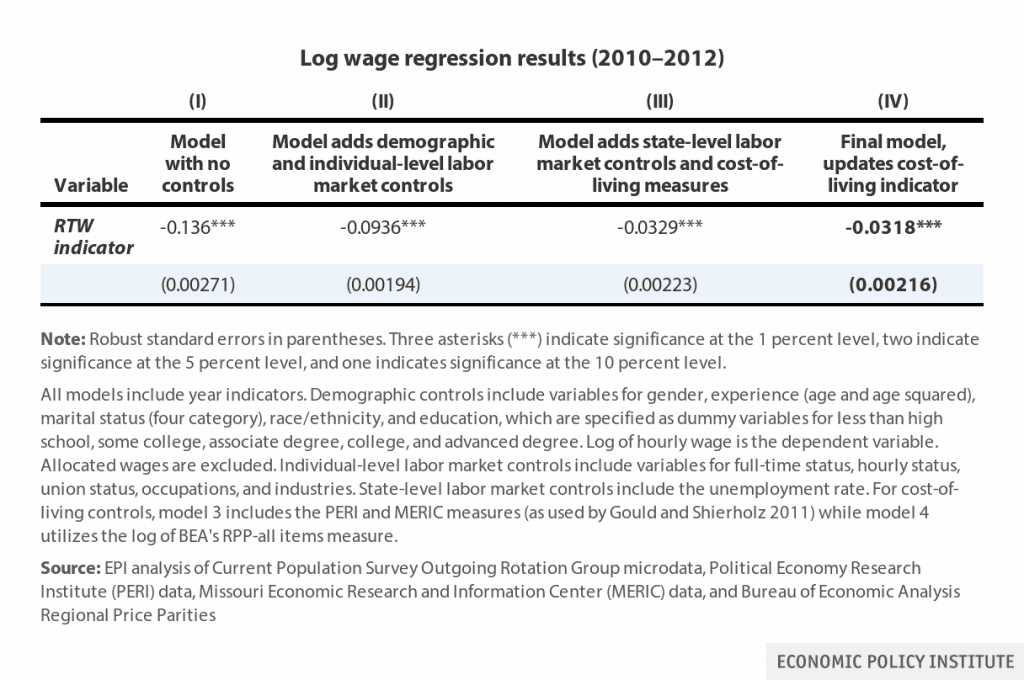A new study published by the Economic Policy Institute confirms that “right-to-work” laws aren’t about protecting worker’s rights. “Right-to-work” laws lower workers’ wages, no matter how you look at them. That’s the conclusion of “‘Right-To-Work’ States Still Have Lower Wages,” a EPI briefing paper by Elise Gould and Will Kimball. The briefing paper is a follow-up to, and a response to criticism of a 2012 study by Gould and Heidi Shierholz.
The 2012 study found that wages in “right-to-work” states were 3.2 percent lower than in non-“right-to-work” states. The current study confirms this, finding that wages in “right-to-work” states are 3.1 percent lower than in non-“right-to-work” states, which translates into $1,558 less in annual wages for workers in “right-to-work” states. Currently, 25 states have “right-to-work” laws. (Three states — Indiana, Michigan, and Wisconsin — passed “right-to-work” laws in the interim between the two studies, but are not included in the study, because the impacts of “right-to-work” laws can take a long time to manifest, and not enough time had passed.)
The way “right-to-work” laws lower wage is by undermining labor unions, by making union dues voluntary while making union benefits mandatory. In other words, workers are entitled to the benefits of a union contract, including having the union take up their grievances if an employer abuses them, but don’t have to pay any of the cost via union dues. Unions, on the other hand, must prosecute worker’s grievances — even if its to the tune of tens of thousands of dollars — without collecting a dime in union dues.
[fve]https://youtu.be/woZGispXuMY[/fve]
The result is a “free-rider” effect that drains union resources, making it harder for unions to bargain for things like higher wages and safer working conditions. Workers in non-“right-to-work” states are twice as likely to belong to unions, which might explain why they ear more than their counterparts in “right-to-work” states.
Expect every Republican presidential candidate to voice his/her support for “right-to-work” laws in the upcoming election. “Right-to-Work” laws are a favorite of conservative lawmakers, for obvious reasons: a drain on union resources, plus a drop in union dues could mean less union money going spent on campaigns. Unfortunately, it means lower wages for workers, and a weaker economy for all of us.


